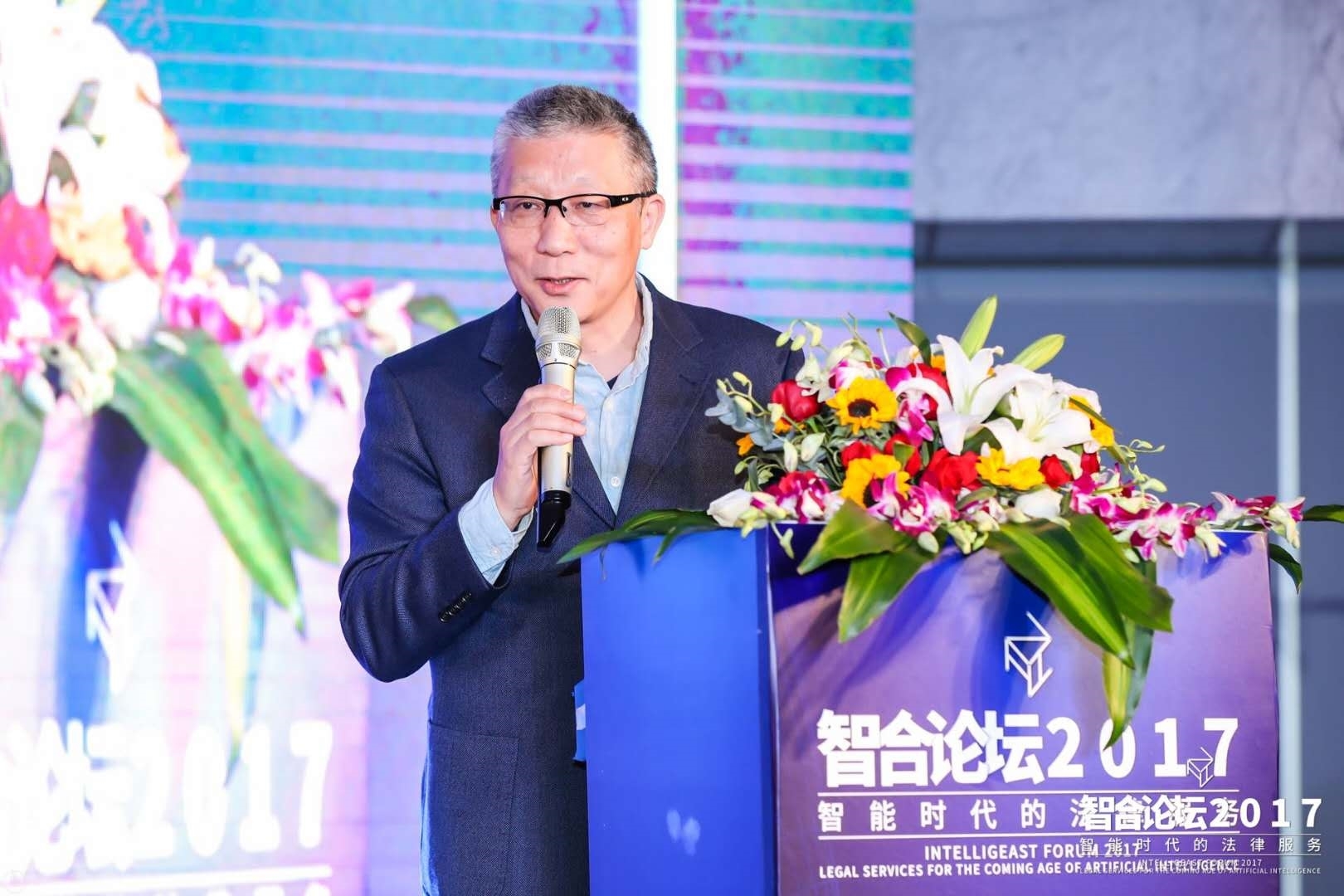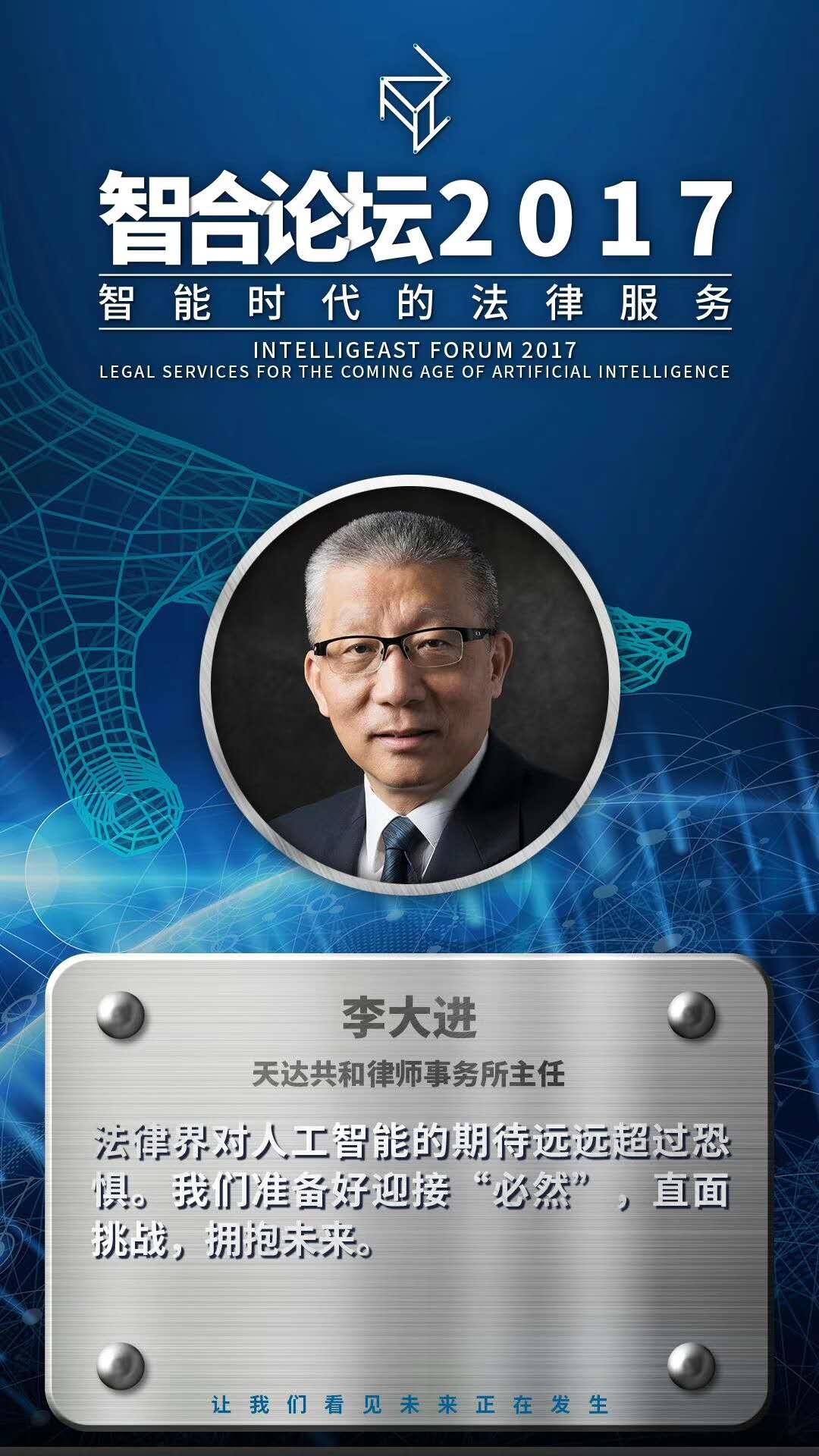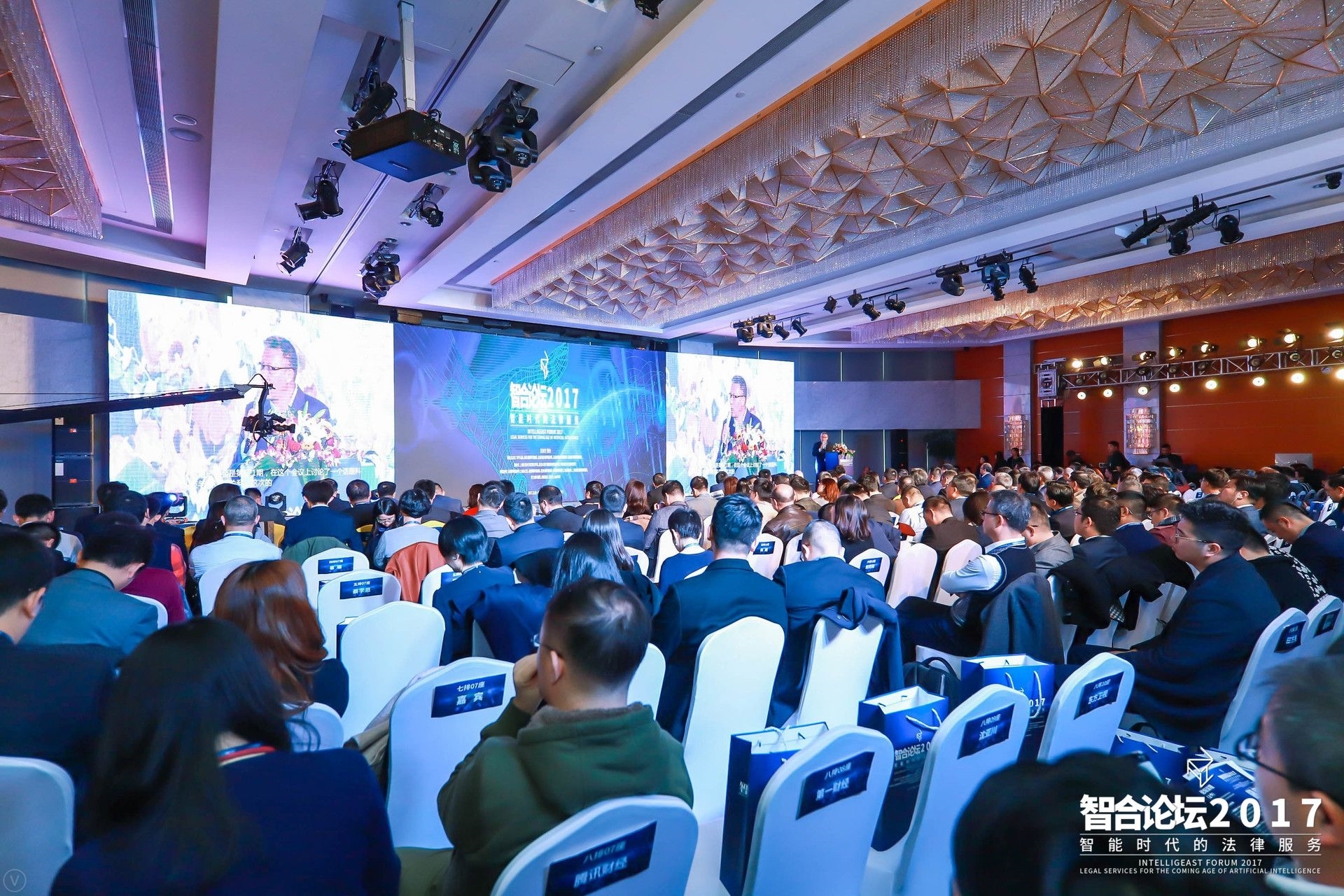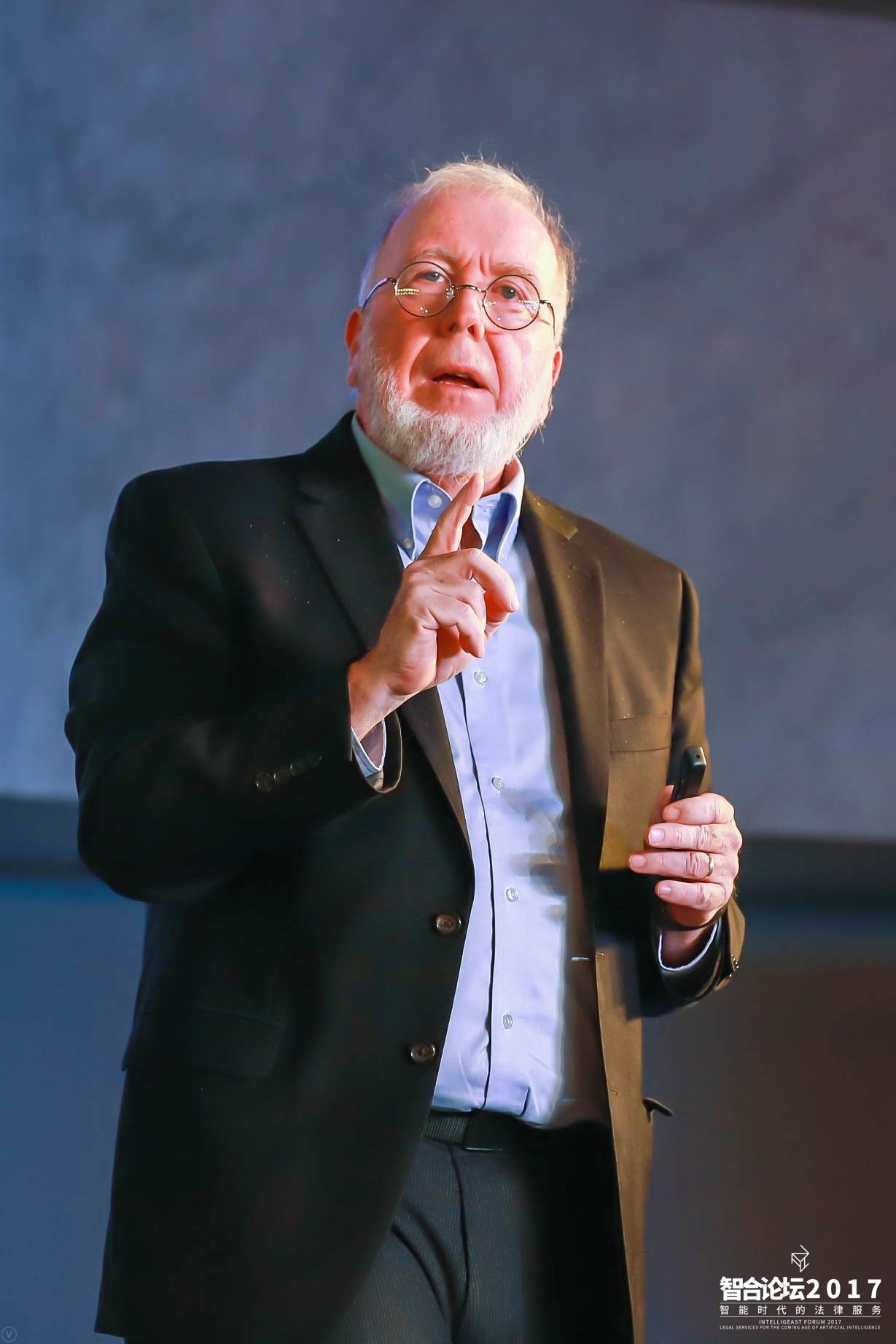News
Legal Profession in Dialogue with Kevin Kelly
On December 2, 2017, a number of notables in the legal profession gathered at “Intelligeast Forum 2017” to discuss “Legal Services for the Coming Age of Artificial Intelligence.” Lawyer Li Dajin, delegate to the National People’s Congress and director of East & Concord Partners, shared his views on the topic.

Li Dajin: About artificial intelligence (AI), lawyers shall point out the problems, warn people of its risks, and provide solutions.

First, let me express my appreciation to the sponsor. I would like to make a speech today on behalf of the lawyers in East & Concord Partners and who pay attention to the hi-tech era. What I want to say is about the duties of the lawyers at the arrival of AI-supported hi-tech law. My peers and masters in the tech world, good morning! Today, we, a group of lawyers, AI researchers and developers and operators, get together today to talk about the application and services of hi-tech intelligence, or we may also talk about our worries, confusion and panic over the arrival of AI. We may talk about services because after AI including hi-tech has demonstrated enormous effects, people and the society see the arrival of an alternative era, the enormous market benefits that may be brought by AI, and the infinite convenience that AI may bring to people’s life. Panic or worries arise probably because people fear that some industry, the jobs or careers of certain groups or individuals may be affected, even eliminated. Such sense of crisis comes from our lack of understanding or excessive understanding of AI.
What should the lawyers think at the arrival of such an era? I think when we talk about the benefits that are brought to us by commercially applying AI and other hi-tech, we lawyers should think about our responsibility therein. “Responsibility” sounds heavy, but actually it is not at the arrival of hi-tech and AI era. It is in fact what we lawyers should do.
A few years ago, I had the honor of attending a reputed conference in the tech world. It was Xiangshan Science Conference (XSSC) that was created by more than a dozen ministries and commissions in 1993. I took part in the 621st XSSC. At the conference, there was a topic on the relationship between science and technology and law. The famous academicians and scientists from different countries to that conference talked about life engineering, AI, and genetic engineering, what they might bring to the human society, and possible legal issues involved. There I heard the voice of reason from hi-tech research staff and experts and scholars for the first time. It surprised me. Barely anyone talked about application, the market, or benefits. They just cried a concept into each law man who was present, “What right do we have? What restrictions should scientific research and development be put under?” Excessive development of AI, life engineering, and genetic engineering will bring disasters to the mankind, and that’s what I had never thought about before.
At the conference, these scientists talked about the enormous changes of the human beings by science and technology, scientific and technological development, and their conflicts with the law, ethics, and morality. Some scientist studying AI pointed out with professionalism that the core of AI is to collect Big Data, calculate Big Data, and then let intelligent machines make decisions automatically. The foundation of law is the democratic deliberation, acknowledgement, and decision-making of man. Between AI’s automatic decision-making and the democracy of law, there is the conflict over applicable rules, and the issue of legality of AI decision-making. AI behaviors also have conflicts with the norms and rules of basic human behaviors.
AI needs legal protection. In particular, regulations and rules are needed to conduct appropriate, moderate, and proper R&D and application for people’s lives. Disorderly hi-tech R&D and excessive application will inevitably bring disasters to the mankind. These scientists made a call upon the lawyers—what responsibilities should the lawyers take? We just can’t simply focus on the market, the benefits or the functions of science and technology in R&D activities, but ignore the collisions that they may bring to us and the fact that they involve the law and ethical and moral issues. At that conference, I heard these scientists telling me and all the other lawyers present that the technology today can make a man not like a man. Some words we Chinese used to say to abuse others have changed into reality. For example, we say a person “with a wolf’s heart and dog’s lungs (metaphor, to describe a person who is as cruel as a wolf),” and today someone sitting beside me may really have a wolf’s heart and dog’s lungs and may even live longer than I. For another example, when we say to a person, “You pig-headed,” we actually say it derogatively. But in the future, the person sitting beside me may really have a pig brain and be smarter than me by tens of thousands of times. In the past when we doubted or abused someone, we usually said, “Are you even a man?” While that may possibly happen in the days to come—someone with a man’s body, but organs that are not human organs. When it truly happens, what should we lawyers be thinking about? It was my greatest gain from attending that conference.
Today when hi-tech is unstoppable and we have enjoyed the convenience and efficiency that are brought to us by hi-tech, businessmen are more than excited and the masses are more than confused, but the lawyers can’t stand aside, but take the responsibilities that we should take. My shallow understanding is that we have three basic responsibilities: Firstly, the lawyers shall stand up, point out the problems, warn people of the risks, and provide solutions. Secondly, with our experience in the legal profession, especially in judicial practice, we shall promote the development and introduction of legal safeguards and norms on scientific and technological applications to the human society so that all hi-tech including AI will benefit instead of scourging mankind. Thirdly, we shall actively appeal, advocate, and remind the whole society to treat and apply all hi-tech including AI with reason and, while jumping for joy for its miraculous effect and great benefits, appropriately and properly interpret the conflicts and challenges in terms of morality, ethnics, the law and order.
As authentic human beings with blood and flesh, we can never ignore that or leave it unattended. It’s our duty-bound responsibility. In the speedy development of scientific and technological progresses, the lawyers shall knock the mallet from time to time. Finally, I would like to borrow the famous words of Edgar Bodenheimer, a famous American jurist, to end my speech, “What is the biggest invention in human history? It’s law! All of the rest of the inventions teach people how to tame the nature, while the law teaches people how to tame themselves”
Kevin Kelly: The Best Time Ever
“The Best Time Ever: How AI Will Create A New Platform for Civilization?” was the title of Kevin Kelly’s one-hour speech.
He shared the seven major trends that will affect human civilization because of the arrival of AI. First, scale. He said that technology will bring a great number of opportunities, and opportunities keep expanding the scale of the things people are doing now. Second, data tracking. Possessing data is more valuable than possessing clients. Relative to Ford, Tesla Motors has and will have a greater value. If data are interconnected to other data, they will have a greater value.
Third, possessing the right to use will become more important than possessing ownership. It is difficult to own data or ideas, and understanding the mode of operation of information and data, as well as how they work out will become the trend. Fourth, a visual era is approaching. The society has shifted from the text mode to the visual mode, and such shift has brought additional opportunities for the legal profession.
Fifth, experience. Mankind has developed from the information era to the experience era. Experience has become a new way of currency. People can create experience, and that is what distinguishes man from machinery. That’s why experience is new currency. Sixth, Peer-to-Peer. The decentralization mode of distribution is evolving. Seventh, cognition. If the second industrial revolution emancipated man’s muscles, the AI revolution will emancipate man’s IQ. People will engage in fields where efficiency is not that important, and tasks that request high efficiency will be undertaken by robots. Besides, mankind will engage in other work irrelevant to efficiency, like art, science, and innovation.
It is for such reason that the best chess player or lawyer will not be man or machine in the future, but a combination of both. AI does not think in the way human beings do, but in its different ways. If man can make use of such new ways of thinking, man will stand more advantages. The better man cooperates with AI, the higher the returns man gets from it. Man will not confront AI, but join hands with it.
Of course, as Kevin Kelly pointed out, robots will have emotions, and how to treat AI as man’s intelligent children, teach values and the moral system into them are the problems and challenges man will have to face in the future. Despite the doubts about AI now, if we travel to 2052, nearly half a century later, and we look back at 2017, we will discover that like any historical moment in the past, this is the best time ever.

Lastly, let’s call it a day with Mr. Li’s words, “What is the biggest invention in human history? It’s law! All other inventions teach people how to tame the nature, while the law teaches people how to tame themselves.”
For the incoming AI, lawyers are waiting, with excitement. It is not too late this time.
 联系我们
联系我们
 关注公众号
关注公众号
 联系我们
联系我们



